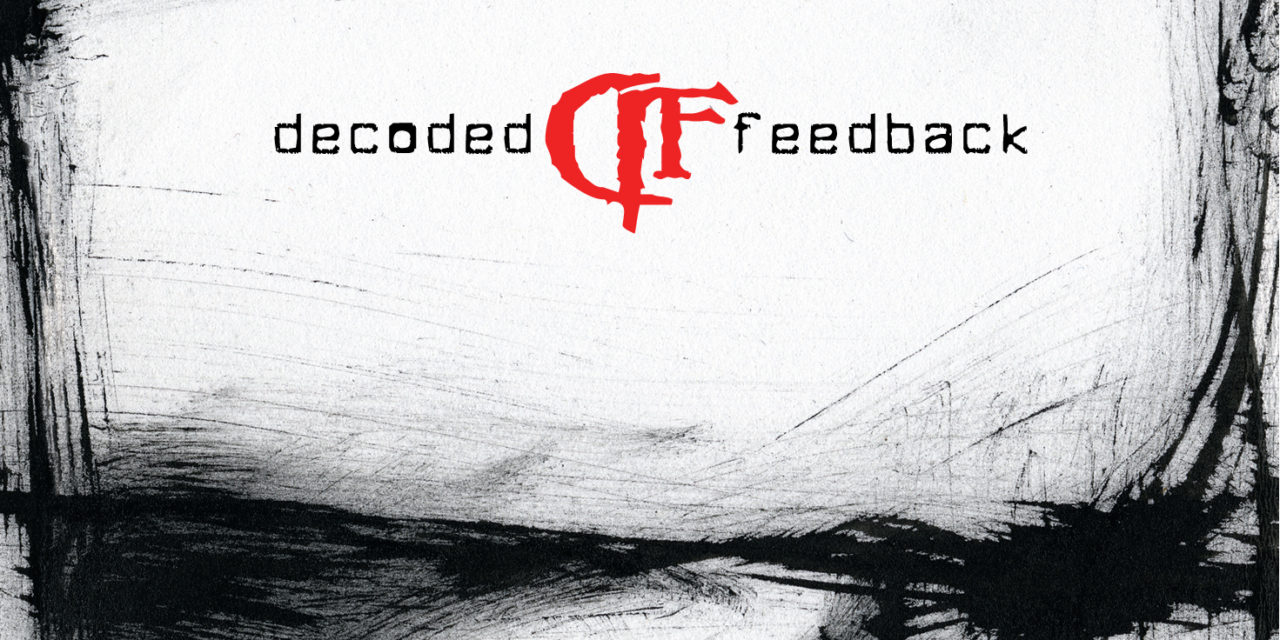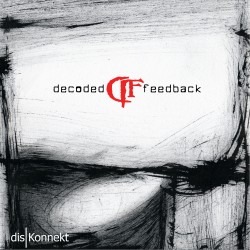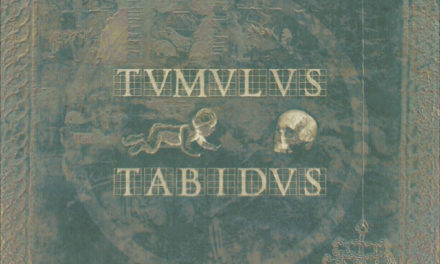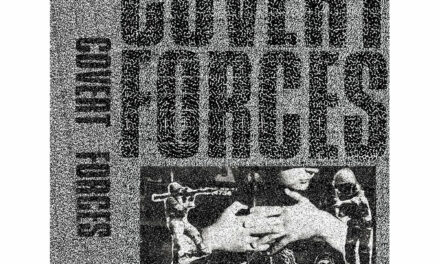Decoded Feedback
disKonnekt
Metropolis/Dependent
I like Decoded Feedback for a lot of reasons. Firstly, they’re a Canadian act with a distinctly European sensibility; Marco Biagiotti and Yone Dudas have been plying their particular strain of electro-industrial for more than a decade and a half now, developing a following on both sides of the Atlantic. Secondly, they’ve never made any concessions to prevalent sounds in that time. While their production and and programming chops have developed apace their albums have a constancy to them I find comforting. If I put on a Decoded Feedback I know what I’m going to get, and as someone reared in the 90’s industrial scene there’s always going to be a place in my heart for big swirling synth arpeggios and movie samples.
I make a point of mentioning this because I want to give some context for what I say next: disKonnekt isn’t the best album by DF, but it scratches a specific itch, and I genuinely believe that the individual listener’s enjoyment of it hinges on their affection for the style and the band themselves. It’s hard to imagine it winning over anyone who isn’t already an initiate, and while that does have a certain caché (I did just get done praising them for how undiluted their sound is), it makes a critical assessment tricky.
Before this review disappears into its own navel, it’s important to highlight the fact that the LP does have a few quite good songs on it. Opener “Another Loss” is a marvelous mid-tempo number, its synth washes enveloping a particularly good vocal performance from Marco and some tasteful guitar accents that sit in the mix just-so. And “Slaughter” is a trad-dark electro workout replete with samples from Deliverance, an exceptionally upfront bassline, and touches of vocoder. Decoded Feedback have the knack for layering a lot of elements into their songs without causing them to become indistinct or muddy, and a huge part of the appeal of disKonnekt is in the full-bodied sound that creates.
With that understanding, it has to be said that a lot of the songs themselves aren’t overly memorable. My iTunes playcount for the fast-paced “Night Terror” and the instrumental “Dark Odyssey” sits at six each at the time of this writing, and while I enjoy both of them in the moment, I’d be hard pressed to pick them out of a line-up of similar tunes from the band’s catalogue shy of cueing them up for a reminder. The ballad “Heart of Stone” fares similarly; although I’m taken with its emotional feel I can’t quite hold onto it’s hook or melody. They’re not bad songs objectively speaking, I think they (along with much of the rest of the album) are adequate, and you can take that however you want.
Two songs that appear late in the album specifically stand out for their departure from the template, and are worth noting for that. The first “Soultaker” is a collaboration with fellow dark-electro loyalist Claus Larsen and plays as a kind of spooky-breakbeat-electro-industrial-surf-rock tune (really), that finds an unexpected kinship between the genres, which have little in common aside from their affinity for reverb. It’s unabashedly lively and over-the-top, and hopefully a hint of the fun Marco and Claus’ recently announced project Sequential Access might get up to. Less successful is the “Tribute to Blade Runner” that closes off the record; it’s a largely inoffensive bit of Vangelis worship that walks the line between cover and pastiche, but is hobbled by the same “Wake up, time to die!” and “I’ve seen things you people wouldn’t believe…” samples we’ve been hearing on records like this since time immemorial.
Is it obtuse to suggest that if you like Decoded Feedback, you will like the new record by Decoded Feedback? Because if I boil down all my thoughts on disKonnekt, that is what they amount to. I can’t shake the notion that I would be less forgiving of it were I not inclined to like it before even hearing it. With that qualifier in mind, it offers up a solid if not exceptional listening experience, your enjoyment of which will be commensurate with your affection for the group and their approach.






